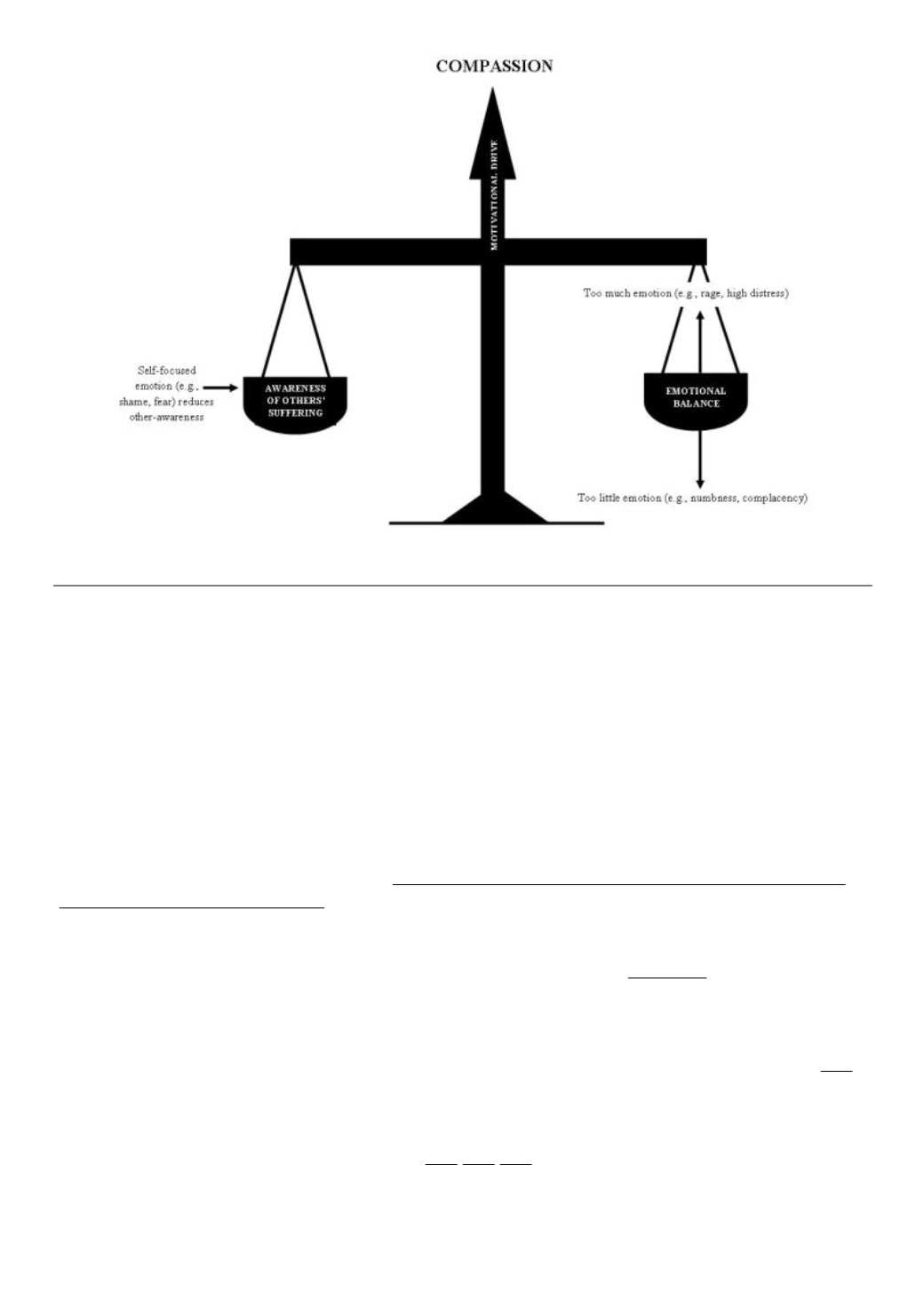
Figure 1.
Model depicting the importance of awareness of others’ suffering and emotional balance in increasing the
compassion drive, and the unbalancing effects of self-focused emotion as well as too much or too little emotion.
Inhibitory Effects of Self-Oriented Emotions
As suggested above, one significant impediment to compassion is emotion that shifts attention in a
direction inconsistent with the goals associated with compassion. The focus of compassion is “the
other”, and in particular the well-being or plight of the other. Emotions that involve a persistent
focus on “the self”, whether positive or negative in valence, should impede a focus on the other,
thus reducing the capacity for compassion.
The fight or flight motive, for example, is focused primarily on preserving the well-being and
survival of the self (or one’s “expanded” self, e.g., one’s progeny). Therefore, emotions associated
with the fight or flight response, namely fear and anger, should interfere with the experience of
compassion. Dacher Keltner, in his book
[
] makes a compelling case for this position. He argues that similar
to the fight or flight response, other-oriented responses like compassion are wired-in components
of our brain and behavior and our instinctual repertoire. And the fight or flight responses are at
odds with the motive to care for others on an ongoing basis [see also
].
A second emotion set that should interfere with the experience of compassion includes the self-
conscious emotions: shame, embarrassment and pride. These emotions involve a focus on the
self, either negative in the case of shame and embarrassment or positive in the case of pride
In the case of shame, the focus is on negative evaluations of core aspects of the self (e.g., feeling
ashamed about being unintelligent). For example, shame can occur when one experiences a threat
to the goal of maintaining one’s esteem, status and acceptance in the eyes of others and involves
evaluations of the self as damaged or inferior
In contrast, while embarrassment also
involves a negative evaluative focus on the self, that focus is directed towards more state-like
behavior (e.g., feeling embarrassed for tripping in front of others). Shame and embarrassment
should interfere with the motivation to reduce the suffering of others, at least in part because both
329


